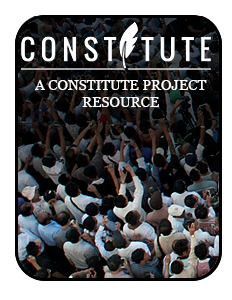After seven decades as a constituent republic of the USSR, Belarus attained its independence in 1991. It has retained closer political and economic ties to Russia than have any of the other former Soviet republics. Belarus and Russia signed a treaty on a two-state union on 8 December 1999 envisioning greater political and economic integration. Although Belarus agreed to a framework to carry out the accord, serious implementation has yet to take place. Since his election in July 1994 as the country's first and only directly elected president, Aleksandr LUKASHENKO has steadily consolidated his power through authoritarian means and a centralized economic system. Government restrictions on political and civil freedoms, freedom of speech and the press, peaceful assembly, and religion have remained in place. The situation was somewhat aggravated after security services cracked down on mass protests challenging election results in the capital, Minsk, following the 2010 presidential election, but little protest occurred after the 2015 election.
Belarus is a presidential republic in name, although in fact a dictatorship.
Source: CIA World Factbook
Members:
Resources
Displaying 11 - 15 of 70Agreement between the Ministry of Natural Resources and Environmental Protection of the Republic of Belarus and the Ministry of Ecology and Natural Resources of the Republic of Azerbaijan on cooperation in the field of environmental protection.
Cooperation shall be carried out in the following areas: (a) use of economic methods in nature management with the application of environmental audit; (b) rate setting, standardization, metrology and certification in the field of environmental protection; (c) environmental monitoring; (d) protection of atmospheric air; (e) protection of surface and groundwater; (f) protection of land; (g) protection of wild flora and wild fauna; (h) protection and development of protected natural areas; (i) exploration of mineral deposits with the application of environmental-friendly methods; (j) scientifi
Memorandum of Understanding between the Ministry of Architecture and Construction of the Republic of Belarus and the Ministry of Housing of the Residential Environment of the Bolivarian Republic of Venezuela on cooperation in the field of planning.
The Parties have agreed to exchange experience and knowledge in territorial (land-use) planning in residential urban areas. Cooperation shall regard some cities in the Northern and Central parts of Venezuela and some suburban areas of Caracas.
Constitution of Belarus 1994 (rev. 2004)
The constitution was approved by the Supreme Soviet.
Ministerial Decree No. 456 regulating some issues of land classification and transfer of land from one category to other categories.
This Ministerial Decree establishes that land shall be classified by categories according to Land Code. The classification shall be as follows: (a) arable land; (b) long-fallow land; (c) land under perennial cover; (d) meadow land; (d) forest land; (e) land under plantations and shrubbery not pertaining to forest estate; (f) marsh land; (g) urban land; (h) land of waterbodies; (j) disturbed land; (k) unused land; and (l) unclassified land. Classification of land by categories shall be the primary task of the state land cadastre.
Decree No. 16 of the State Committee on Land Resources, Geodesy and Cartography validating the Regulation on state registration of transfer of ownership of the plots of land in case of purchase and sale thereof and registration of land purchase and sal...
This Decree establishes the modalities of state registration of transfer of ownership of the plots of land in case of purchase and sale thereof and registration of land purchase and sale contracts. Land purchase and sale contracts shall be concluded in written form. The contracts shall be subject to notarized certification and transfer of land ownership shall be subject to state registration. The provisions of this Decree shall be applicable also to state registration of exchange of land plots contracts.



